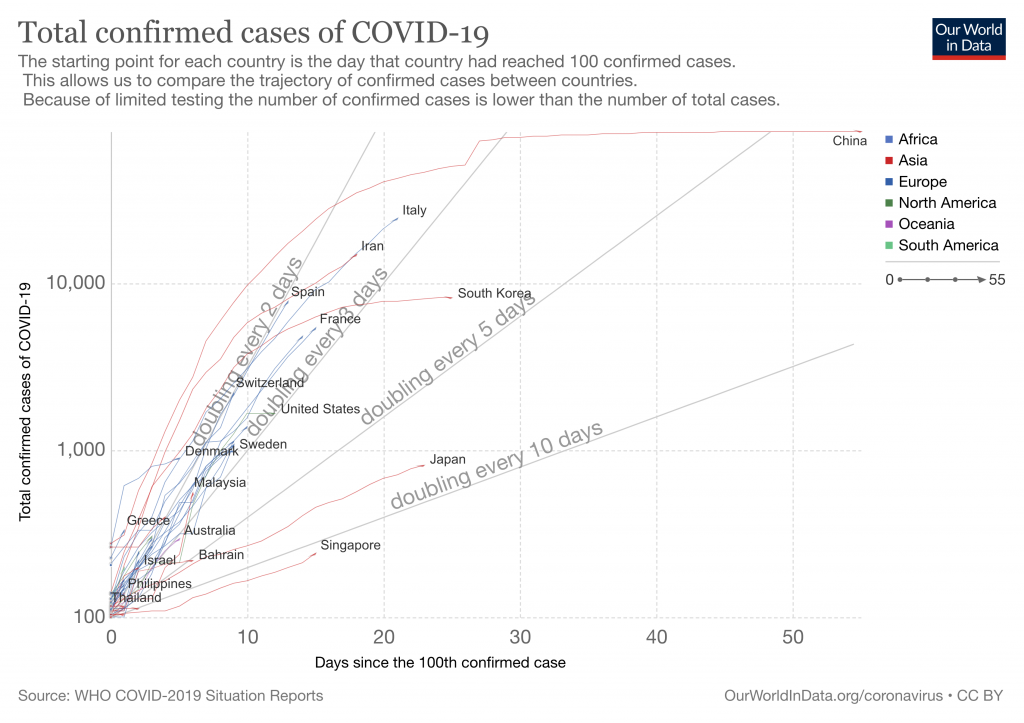We live in interesting times. Or at least, not many of us can remember a situation where the whole world was impacted so uniformly by the spread of a virus. The last truly global pandemic incident was probably the 1918 Spanish flu. More people died in that influenza pandemic than during the first world war.
Whilst this disruption to our usual routines is threatening, there is no need for the panic buying and extreme media hype surrounding the issue. Covid-19 is certainly a lot less deadly than many other infectious diseases. However, neither is it the time to shrug our shoulders and say “it’s just a flu”.
Global information
With so much noise and fake news circulating as well as situations changing by the hour, it is important to rely on trusted sources such as the World Health Organisation. The site ourworldindata.org does a good job of visualising the latest information.
Several countries are currently adopting an approach of only testing serious or “at risk” cases; which makes sense from a treatment perspective. Yet wider testing, where possible, will help us to get a much better understanding of this new disease.
Social distancing is one of the few measures that has been shown to effectively “flatten the curve” and slow the rate. At the time of writing, cases in most European countries are continuing to double every 2-3 days.

Many of us are now expected to work from home. Schools and universities, shops, restaurants and sports centres are closed. Travel disrupted, borders restricted and a large number of professional and social events cancelled. Research and academia, outside of lab work, is one of those jobs that can be done almost anywhere, provided there is a laptop and an internet connection. In that sense, we are very fortunate in our flexibility. Although universities are trying to continue students education, it is almost inevitable that there is a reduction in teaching hours. Many conferences and meetings have been cancelled, postponed, or replaced by remote calls. Working from home is, nevertheless, a challenge.
The positives
So, what are the best things about Covid-19?
— The reduction in commuting, travel and meetings can free up time for other things; more time for writing and research, perhaps? Certainly many people are rediscovering various pastimes.
— Globally, this has drastically improved emissions and led to noticeable improvements in the health of the environment. It shows that if politicians really wanted to act against climate change, they could.
— Something to consider – is our usual rate of travel and meetings really necessary? A reduction in the number of face-to-face meetings and improved options for remote connection could help many people who can’t always attend in person.
— If working from home emerges as a viable option for such a large portion of the population, will employers become more accepting towards the idea of flexibly working from home more often?
— On a more social level, although we no longer shake hands, many people are making more of an effort to connect with friends, family and neighbours – whilst maintaining distance, of course.
— Shared experience will perhaps make us more empathetic towards each other and, if it’s not too much to hope for, towards refugees and those who are socially isolated.
— At least people are learning how to wash their hands properly.
We are all in this together. Let’s try to collectively transfer the lessons learnt into lasting change. Now is a good time to have a serious think about what we, as a human community, want for the future.
